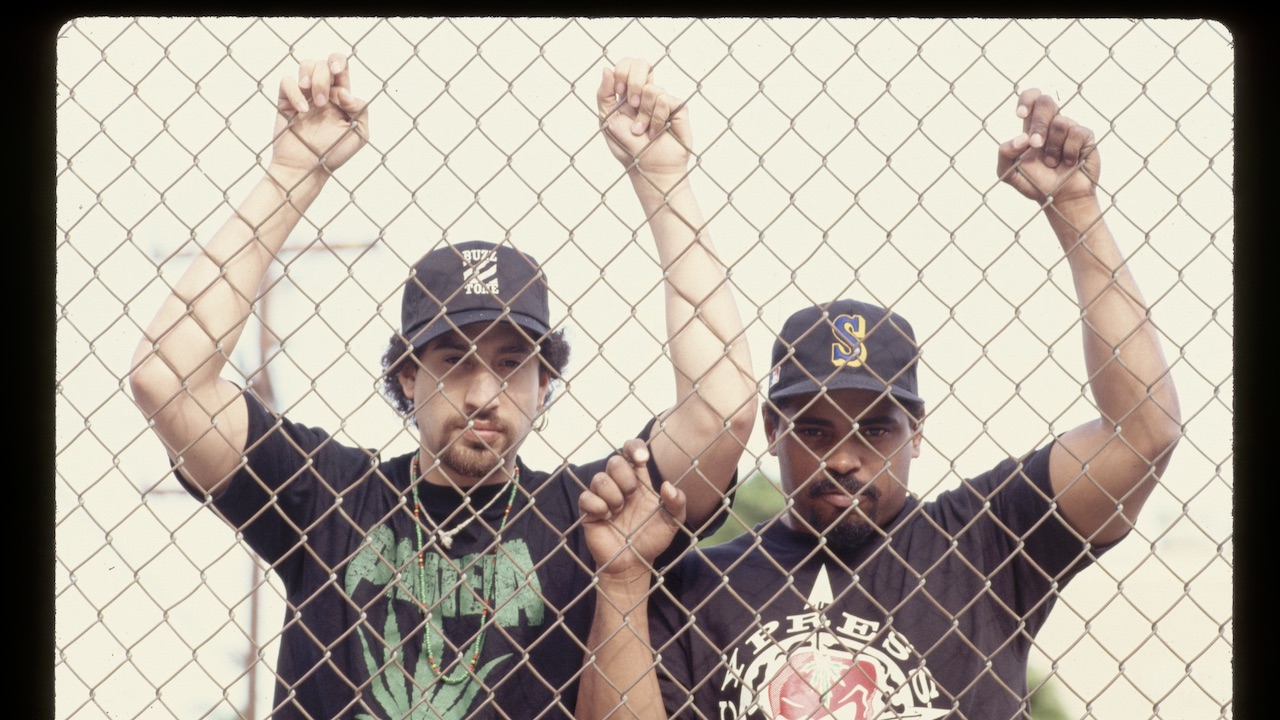
As with many of their peers in the 1990s, Cypress Hill owe a debt of gratitude to the organisers of the touring Lollapalooza festival for helping to catapult them firmly into the centre of the mainstream music industry.
No-one had anticipated quite how successful the inaugural staging of Perry Farrell’s alternative rock roadshow would be in the summer of 1991 – “We didn’t have a clue about what the hell we were doing,” Don Muller, Jane’s Addiction’s agent, and one of the festival’s co-founders, admitted in 2024’s excellent oral history Lollapalooza: The Uncensored History of Alternative Rock’s Wildest Festival. “If anybody says differently, they’re lying.” – but with rising stars Red Hot Chili Peppers, Pearl Jam, Ministry and Soundgarden on the main stage bill, 1992’s event looked like a much safer commercial bet. And so it proved, with even acts on the festival’s second stage benefitting from the exposure.
Cypress Hill only played a handful of shows on the tour, but this elevated platform -and media coverage of the tour – helped transform them into one of the decade’s most successful hip hip crews.
“I’d look out into the crowd and these long-haired kids were wearing NWA and Public Enemy T-shirts,” rapper Sen Dog tells The Independent in a new [paywalled] interview. “Just because they were rock kids doesn’t mean they don’t listen to hip-hop.”
“Our songs connect with people, whether you live in the suburbs or in the ghetto – everybody has issues,” agrees his bandmate B-Real. “We had a punk-rock mentality – a ‘don’t-give-a-f***’ mentality at a time when people wanted to say, ‘I don’t give a f***, either!’ We represented those people. And it was surreal, seeing those audiences come to us, but we were never afraid of a challenge.”
As two men, the pair were members of infamous Los Angeles gang the Bloods. When he was 17-years-old, B-Real was caught up in a confrontation with rival gang the Crips, and a ricocheting bullet pierced one of his lungs. Perhaps unsurprisingly, he decided then that gang life was not for him, and he began to focus on music in the company of his friends Sen God and Dj Muggs. Following Lollapalooza 1992, the band’s 1993 album, Black Sunday, debuted at number one on the US Billboard 200 chart, and in 2019 they became the first hip hop group awarded a star on Hollywood’s iconic Walk Of Fame.
“Those rock audiences helped grow hip-hop into one of the biggest genres,” reflects Sen Dog. “They dug us because we’d grown up listening to rock and metal, too.”
